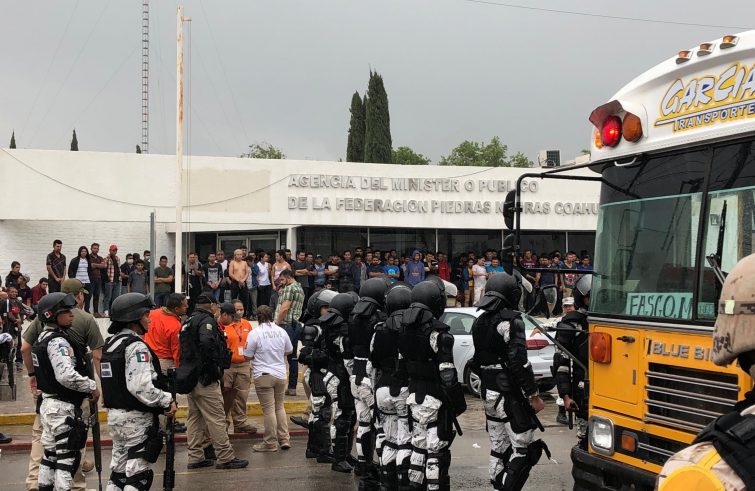
(from New York) Msgr. Mark J. Seitz, Bishop of El Paso, Texas, sent a letter to Immigration Officers guarding entry from Mexico with a request to release non-violent or dangerous migrants from detention facilities at the border. The bishop explained that if the Covid-19 pandemic were to spread in detention facilities, it would endanger not only the lives of migrants and border police but the entire community of El Paso. The Federal Government stated that no prisoners would be released from ordinary prisons and detention centres, but the migrants detained in Texas, as in California and Arizona, are not criminals but people who have crossed the border driven by serious economic needs and life-threatening risks.
“It’s a matter of public health”
stressed Monsignor Setz, recalling the letter that Dr. Scott Allen and Dr. Josiah Rich, experts in medical care in detention, delivered to Congress in mid-March. The two doctors voiced “grave concern” over the consequences of confining migrants in detention centres during the pandemic and bluntly warned about an “impending risk to the health and safety of migrant detainees.”
The migrants’ dramatic condition is known only to those priests, nuns and activists who witness daily injustices taking place at that border, first in the name of the security of the country and now motivated by fears that the pandemic could be brought in from the South. The Hope Border Institute, based in El Paso, backed the bishop’s statement and called for “immediate measures to free migrants from detention facilities in the border zones”, since “the vast majority have committed no crime and pose no threat to our community”, while an uncontrolled Covid pandemic does. Immigration attorneys who in the past few weeks have requested to visit the centres at their own risk, were refused entry and no one knows the conditions of those detained there and whether the security officers have been infected or are carriers of infection.
The health crisis has led an Arizona support agency of Nogales migrants, to move to Nogales, Mexico, in order to provide assistance to asylum seekers rejected by the US at ports of entry. The Kino Border Initiative hoped to serve at least two meals a day in a dilapidated cafeteria located just outside the border, but the pandemic prevented this possibility and it was only possible to deliver one boxed meal. Here, as elsewhere, Trump’s policy that makes an instrumental use of the coronavirus pandemic to substantiate border-protection policy, prevails also in this area. “We are trying to limit contacts with these people,” declared Chad Wolf, Acting Secretary of Homeland Security, whose words failed to convince those who have been working with these people for years, as Sister Norma Pimentel. “A large part of the problem has been swept under the carpet,” said the nun, in a half-empty reception centre. “It has not been solved, it was simply shoved across the border,” with a high risk of further escalation due to possible contagion.
Meanwhile, in Brownsville, Texas, some parishes have issued ID cards with photos for undocumented immigrants who registered the parish as their place of residence. Local law enforcement agencies have agreed upon the validity of the document in cooperation with the diocese, allowing that at least some of them will be spared from jail or deportation.However, not all parish priests and parishes have adhered to this initiative, as they would rather have little to do with this type of social justice, especially at a time of Covid-19.












